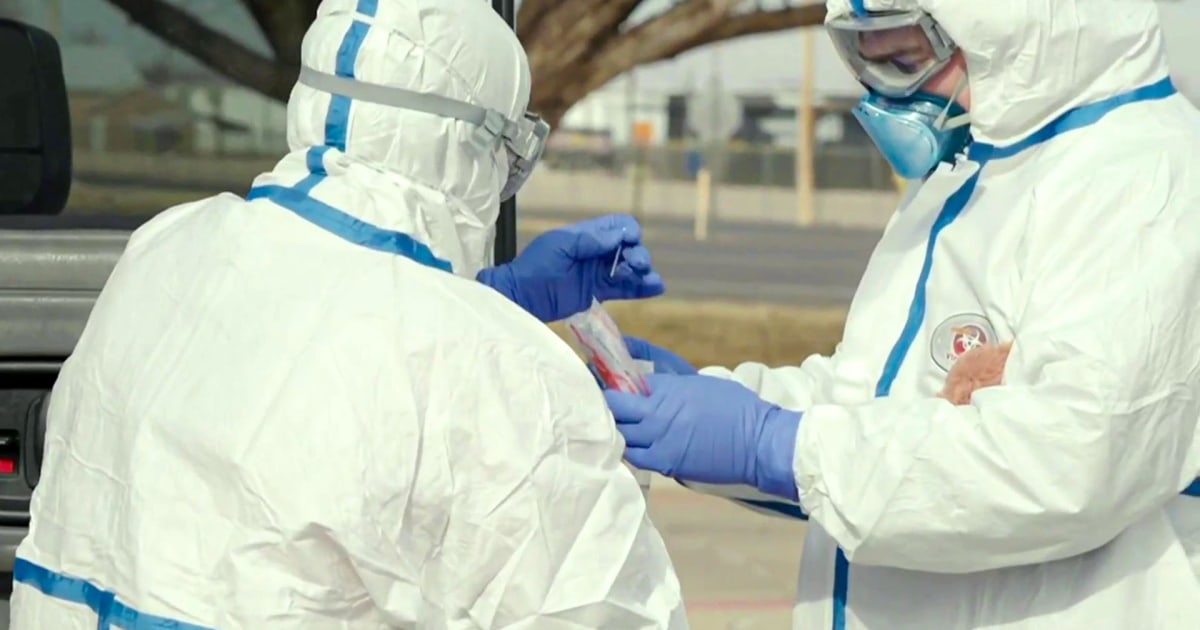Texas Faces Escalating Measles Crisis: A Public Health Emergency
The state of Texas is currently grappling with a significant measles outbreak, with cases surging to 124. This alarming increase has sent health officials into action, urging the public to prioritize vaccination and raise awareness about the disease. Measles, a highly contagious viral infection, poses serious health risks, particularly to unvaccinated children and vulnerable populations. As we delve into the details of this crisis, it’s vital to understand the implications of these outbreaks and the measures being taken to combat them.
Understanding the Measles Virus
Measles is caused by the measles virus, an RNA virus that spreads through respiratory droplets when an infected person coughs or sneezes. The virus can remain airborne for up to two hours, making it extremely contagious. Here are some key facts about measles:
- Symptoms: Initial symptoms include high fever, cough, runny nose, and sore throat. A characteristic rash typically appears 3 to 5 days after the onset of symptoms.
- Complications: Measles can lead to serious complications, such as pneumonia, encephalitis, and even death, particularly in young children and individuals with compromised immune systems.
- Vaccination: The measles, mumps, and rubella (MMR) vaccine is highly effective, providing immunity in approximately 97% of recipients after two doses.
The Current Situation in Texas
The recent surge in measles cases in Texas is a cause for concern. As of now, health officials have confirmed 124 cases, with the majority occurring in unvaccinated individuals. The outbreak has primarily affected specific communities where vaccine hesitancy is prevalent, leading to clusters of unvaccinated children.
According to the Texas Department of State Health Services, the recent outbreak can be attributed to several factors, including:
- Vaccine Hesitancy: Misinformation regarding vaccine safety has led to increased reluctance among some parents to vaccinate their children.
- Travel: Increased international travel has brought individuals into contact with measles in other countries where vaccination rates are lower.
- Low Immunity Levels: In communities with lower vaccination rates, herd immunity is compromised, allowing the virus to spread more freely.
Public Health Response
In response to this escalating crisis, Texas health officials are intensifying their efforts to control the outbreak. Key strategies include:
- Vaccination Campaigns: Health departments are launching targeted vaccination campaigns in affected areas to encourage parents to vaccinate their children. Free vaccination clinics are being set up to make it easier for families to access the MMR vaccine.
- Public Awareness Initiatives: State and local health officials are working to dispel myths around vaccines through educational campaigns, social media outreach, and community forums.
- Monitoring and Reporting: Increased surveillance and reporting of measles cases are being implemented to track the outbreak’s progression and identify sources of infection.
The Importance of Vaccination
Vaccination remains the most effective way to prevent measles and protect public health. The MMR vaccine has proven to be safe and effective, drastically reducing the incidence of measles in vaccinated populations. Health experts stress the importance of maintaining high vaccination rates to prevent future outbreaks. Here are a few reasons why vaccination is crucial:
- Protection of Vulnerable Populations: Vaccination not only protects the individual but also helps safeguard those who cannot be vaccinated due to medical conditions, such as infants or individuals with weakened immune systems.
- Herd Immunity: Achieving a high level of immunity within a community can prevent the spread of the virus, protecting those who are unvaccinated.
- Global Health Impact: Measles is not just a local issue. Outbreaks can have global repercussions, as seen in the resurgence of cases in various countries. By vaccinating, we contribute to global health security.
Community Engagement and Support
The role of community engagement in combating the measles crisis cannot be overstated. Local organizations, schools, and healthcare providers are essential partners in increasing vaccination rates and spreading awareness about the importance of immunization. Strategies to enhance community involvement include:
- School-Based Programs: Schools can serve as vital platforms for vaccination drives, providing accessible information and resources to parents about the benefits of vaccinating their children.
- Collaboration with Community Leaders: Engaging trusted community leaders can help address vaccine hesitancy and disseminate accurate information within communities.
- Utilizing Social Media: Social media campaigns can effectively reach a broad audience, sharing testimonials from parents who have chosen to vaccinate their children.
Looking Forward: A Call to Action
The measles outbreak in Texas serves as a critical reminder of the importance of vaccination and public health vigilance. As the state moves forward in addressing this crisis, it is imperative for residents to take proactive steps to protect themselves and their communities. Here’s what you can do:
- Get Vaccinated: Ensure that you and your family are up to date on vaccinations. If you have questions about the MMR vaccine, consult with a healthcare professional.
- Spread the Word: Share information about the benefits of vaccination within your community and on social media platforms.
- Stay Informed: Keep updated with local health department announcements regarding measles cases and vaccination opportunities.
In conclusion, Texas is facing an escalating measles crisis with 124 cases confirmed, but this situation is not insurmountable. With collective efforts in vaccination, education, and community engagement, we can combat this outbreak and protect the health of our communities. By prioritizing vaccination and fostering a culture of health awareness, we can ensure that future generations are safeguarded against preventable diseases like measles.
See more WebMD Network



